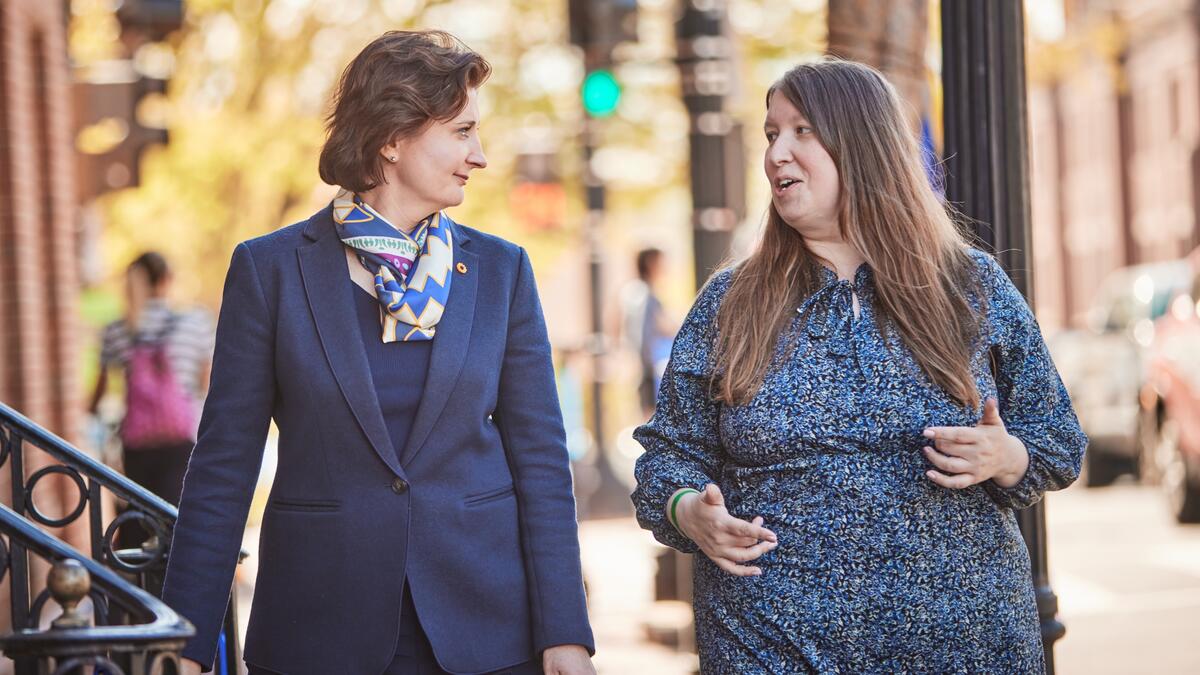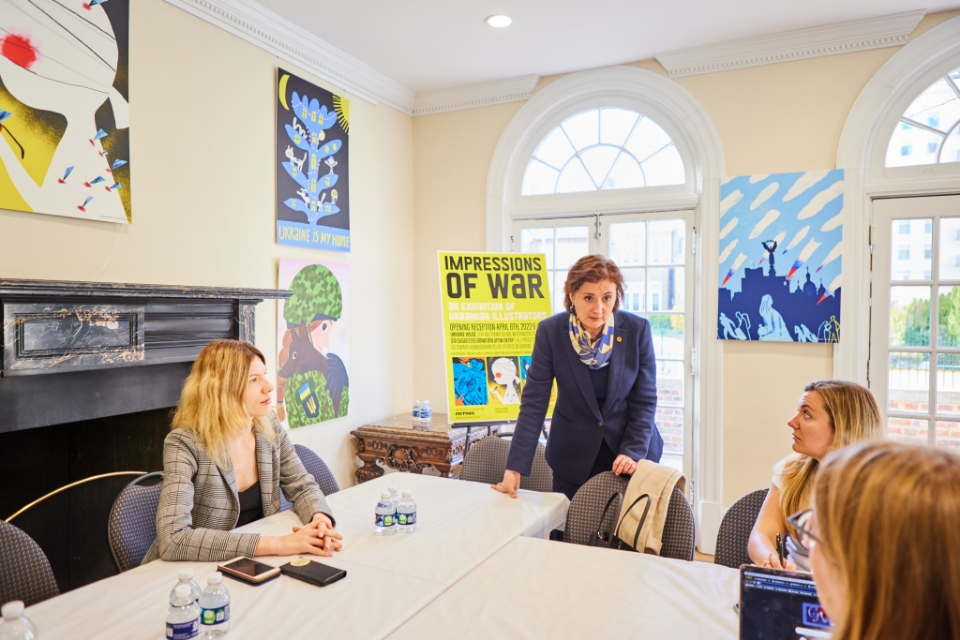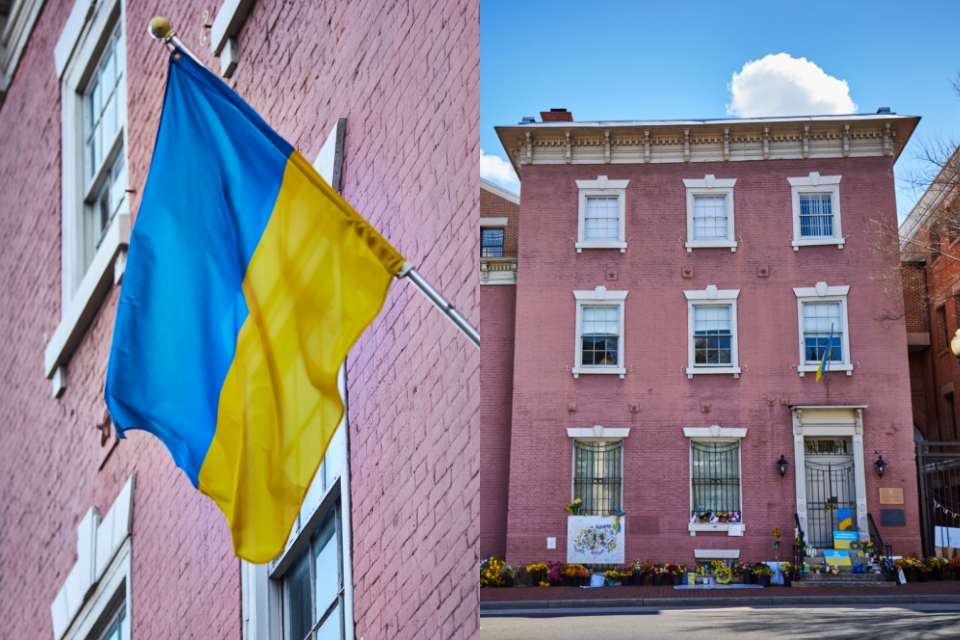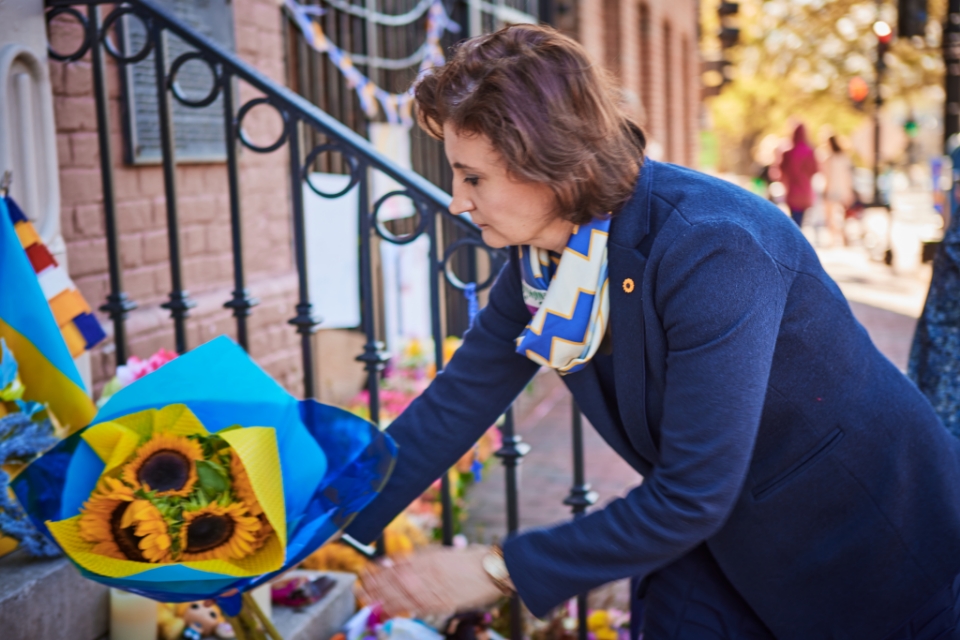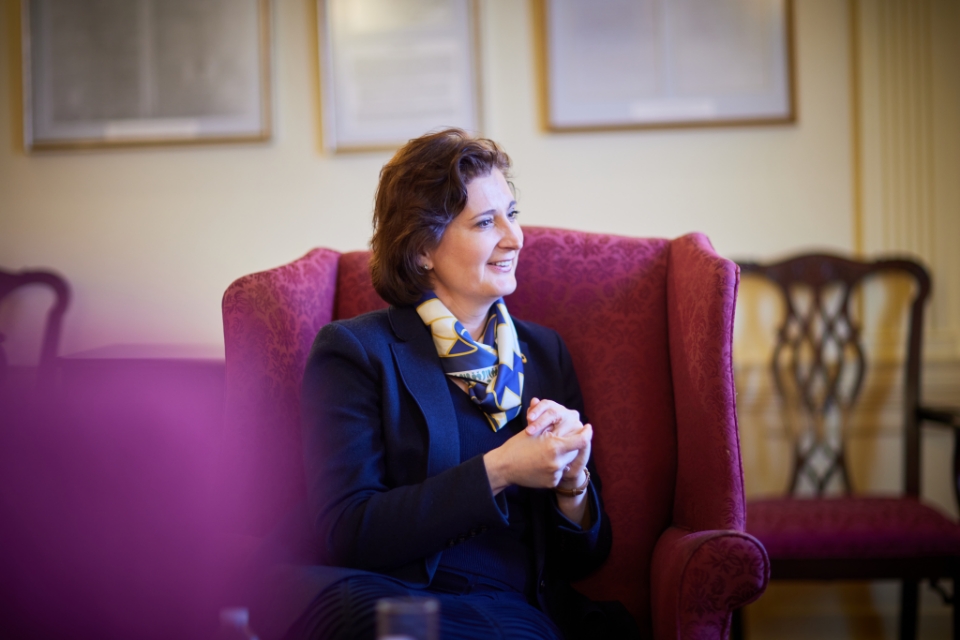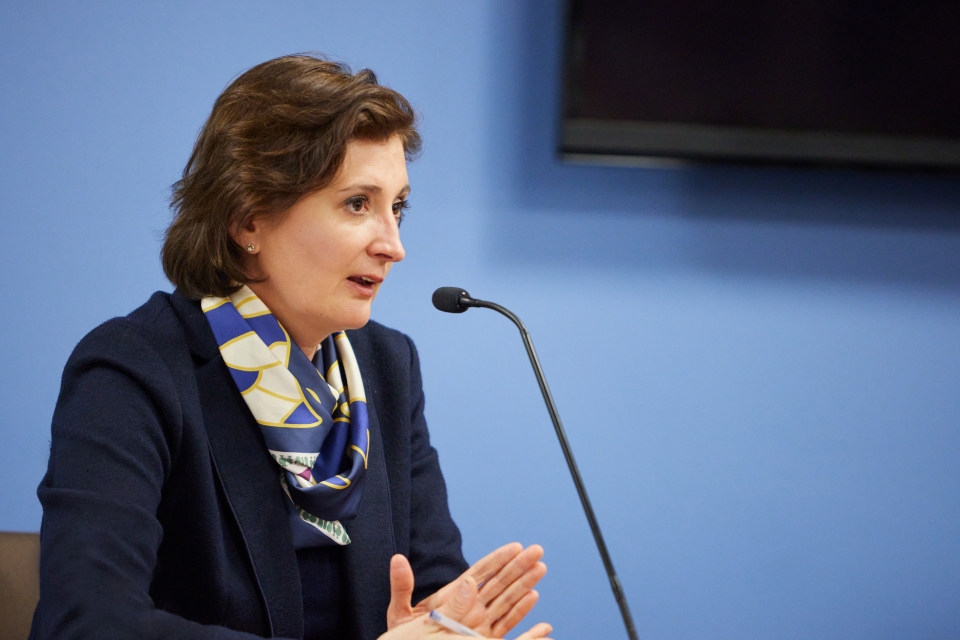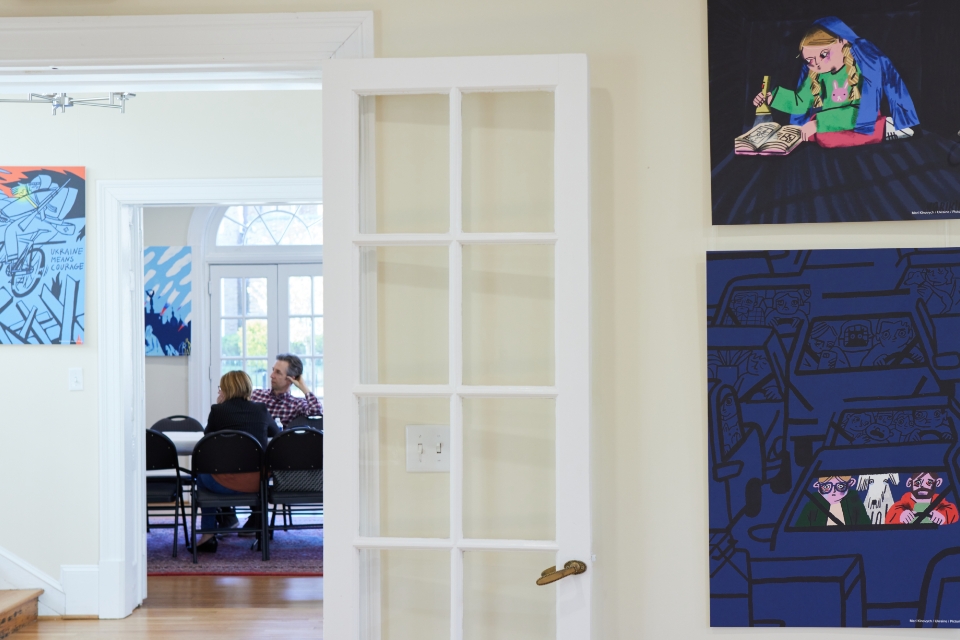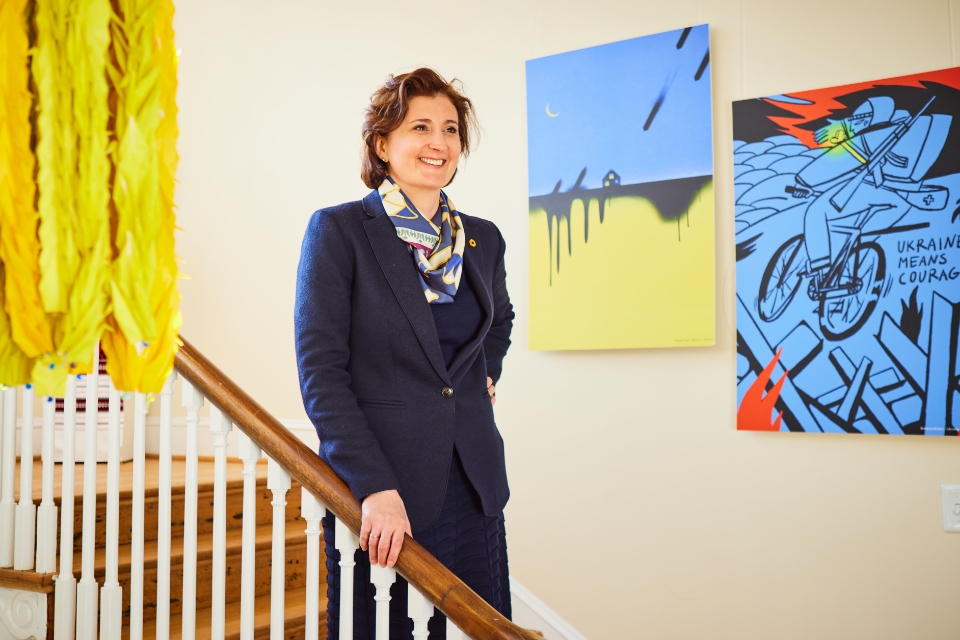Editor’s note: This story first appeared in ASU Thrive’s special photography issue, celebrating a day in the life of inspiring people across the ASU community.
WASHINGTON, D.C. — One week before Russia invaded Ukraine on Feb. 24, Kateryna “Katja” Smagliy moved to Washington, D.C., for her post at the embassy of Ukraine.
Previously, the McCain Institute selected her as a 2019 McCain Global Leader to focus on strengthening democracy in her country. She calls the late Sen. John McCain one of democracy’s biggest supporters. He demonstrated “there are people ready to act in support of their values,” she says.
Before her current embassy position, Smagliy served as director of the Kennan Institute Kyiv Office, promoting Ukraine’s public and cultural diplomacy, and led the Anti-Crisis Humanitarian Program of the International Renaissance Foundation. Smagliy also worked for the U.S. Embassy in Kyiv.
For this photo feature, we spent the day with Smagliy to learn more about her work for democracy as an ambassador.
In the top photo, Kateryna Smagliy speaks with Mary Leonard, founder of Love In ALX, which helps Ukrainian refugees find housing in Poland.
Kateryna Smagliy’s day in the life, fighting for democracy
Wake up just after sunrise
Prepare for the day
Attend daily staff meeting with ambassador
Eat lunch while reading through notes for the night’s presentation
Meet with a group of analysts from Washington-based think tanks in the afternoon
Meet with Mary Leonard who started a nonprofit to help Ukrainian refugees find housing in Poland mid-afternoon
Meet with supporters at the Ukraine House late afternoon
Present and answer questions at George Washington University event during the dinner hour
Arrive home late in the evening
Eat a small snack
Go to sleep
During the 12 hours of her working day, Smagliy met or talked to dozens of people in her official capacity as a diplomat.
An international community in the U.S. capital
Since the war began, supporters of Ukraine have left signs and yellow flowers in front of the embassy, located along the busy M Street in D.C.’s Georgetown neighborhood. As Smagliy travels around the city, she frequently spots newly hung Ukrainian flags outside other embassies, businesses and houses, as people show their support for her country.
Teaching others about her country
Smagliy frequently gets invited to speak at university events. She enjoys this type of “professor” role as she aims to teach about Ukraine’s current affairs, keeping in mind that some students could be future diplomats or political leaders.
On a busy Tuesday, Smagliy wraps up the day around 8 p.m. after speaking at a George Washington University event “Ukraine Under Seige” alongside Ukrainian American journalist Natalia Antonova and Ukrainian visiting professor Roman Kalytchak.
The daily work of democracy
“This big broad picture and the hours of communication, that’s what together transform you and make you a new, more compassionate individual,” Smagliy says.
With the war, she spends at least 50% of her time speaking and attending fundraisers. Her role also includes many meetings with different people from different walks of life.
“The McCain Institute taught us key values and aimed to make sure that we stay strong, focused, determined.”
— Kateryna “Katja” Smagliy, the first secretary of the embassy of Ukraine, scholar from ASU’s McCain Institute for International Leadership
Photos by Aaron Kotowski. Story by Melanie Padgett Powers.
RELATED: Art as outreach: Students create Phoenix mural to support Ukraine
More Law, journalism and politics

Native Vote works to ensure the right to vote for Arizona's Native Americans
The Navajo Nation is in a remote area of northeastern Arizona, far away from the hustle of urban life. The 27,400-acre reservation is home to the Canyon de Chelly National Monument and…

New report documents Latinos’ critical roles in AI
According to a new report that traces the important role Latinos are playing in the growth of artificial intelligence technology across the country, Latinos are early adopters of AI.The 2024 Latino…

ASU's Carnegie-Knight News21 project examines the state of American democracy
In the latest project of Carnegie-Knight News21, a national reporting initiative and fellowship headquartered at Arizona State University’s Walter Cronkite School of Journalism and Mass Communication…
